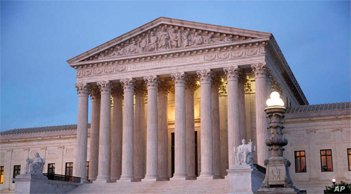Recall Elections: Perspectives from California Professionals
This week, we reached out to California professionals Natalie Blanning Weber and Dave Gilliard of Gilliard Blanning & Associates and Joshua Spivak, Senior Fellow at the Hugh L. Carey Center for Government Reform and author of “Recall Elections: From Alexander Hamilton to Gavin Newsom” to discuss the intricacies and implications of recall elections and give us some insight into the current fight in California.
How does a recall election differ from the regular election cycle?
Natalie and Dave: First, it takes about 2 million total signatures on official petitions to force an election. Obtaining these signatures, especially during the COVID crisis, was an extraordinary challenge. We used Direct Mail and a massive volunteer force. Once the Recall Election qualifies, the timeframe quickens. Candidates have no time to build name ID and fundraising is a huge challenge.
Joshua: Recalls have a very compressed time frame, which makes it quite difficult for officials targeted. In some states, including California and Wisconsin, the campaign finance laws are very different than in other elections. Essentially, there are no limits on fundraising for the target (in California, it is treated as a ballot measure). The result is that the target (Newsom) can raise unlimited funds. Every recall target uses the argument that the recall is a waste of money and an abuse of the process. Sometimes this works, but most of the time, it does not — over the last 10 years, 60% of recall elections have resulted in removal and 6% have led to resignations.
What are the challenges associated with recall campaigns? How do you overcome these challenges?
Natalie and Dave: The YES side has one real advantage – it starts with a lead, in our case a lead of 2 million votes – those who signed the petition. For both sides, the calendar and fundraising are the two biggest challenges. There is little time to educate voters about the recall process, the timing, the importance of voting, etc.
Joshua: The big challenge is turnout. The recall proponents have a “movers’ advantage,” as they are already engaged and enraged. The targeted official must make sure their supporters get to the polls. Notably, in the three previous gubernatorial recall elections, turnout shot up from the last mid-term election.
What are your projections for the September 14th recall election in California?
Natalie and Dave: Question one will be very close. California is a deeply blue state, but with a large percentage of voters highly dissatisfied with the state of affairs – from crime, to homelessness to the cost of living. Californians are paying $5 a gallon for gas! With fires raging and water being cut-off to farms, voters are angry. Republicans are highly motivated to vote in the recall, and Gavin Newsom has a serious problem with his own base. Independents, a key group in California elections, are split evenly. A Republican will take question two.
Joshua: The polls have been moving in a favorable direction for Republicans and supporters of the recall. However, these polls seem to be focused on likely voters. It is not clear how well that screen works, especially with ballots already mailed to people’s homes. By virtue of being in California and the campaign finance rules, Newsom has some significant advantages. What is very different from the Gray Davis recall and the Gavin Newsom one is how much more “blue” California has become. In 2002, Gray Davis won election with 47%. Since you need 50% to survive the recall, Davis was already 3% underwater on day one. Newsom won with 62% of the vote. So he has a 12 point cushion, which is a great advantage.
How does a recall effort in 2021 impact the 2022 midterms in California?
Natalie and Dave: If Gavin Newsom is recalled it will send shockwaves across the nation, especially in progressive circles and, hopefully, rebalance things in California, where hope will be restored for Republicans.
Joshua: It is not clear at this time. It could be that if Gavin Newsom does well, the Republicans will not be able to get a high-quality candidate at the top of the ticket (or even get shut out of the top two race). The result could damage them down ballot. However, it is also likely that it has no impact whatsoever. In 2012, Scott Walker fended off a recall in June. It would be hard to claim that this race helped the Republicans in November, when Barack Obama won Wisconsin.

